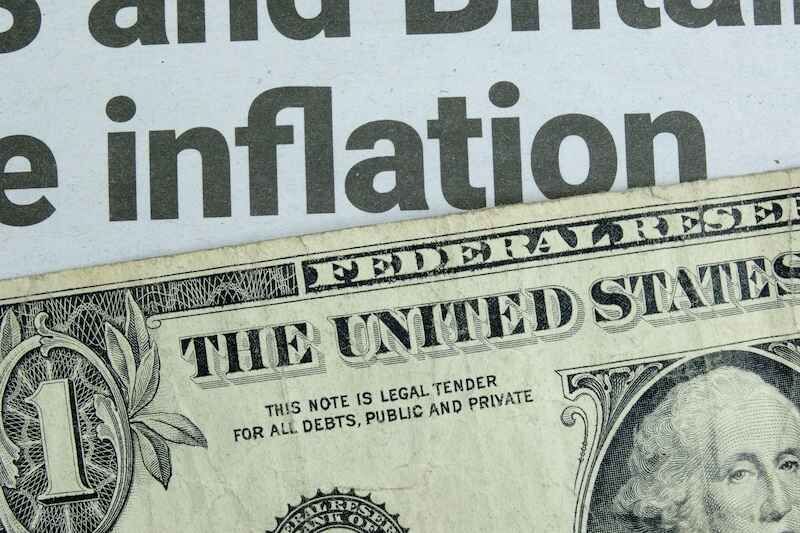Alexander Green recommends investors do one thing going forward…
Don’t worry about the folks who say they know a crash is coming next.
They have no idea.
Instead, this is the single greatest recipe for success in the markets: Invest in great companies with breakthrough products… that are beating sales quarter after quarter.
There is no better way to get wealthy.
And with that in mind, I suggest you watch his new presentation on The Next Magnificent Seven.
It highlights Alex’s seven favorite stocks in the market right now.
As the old saying goes, “Bears make headlines, but bulls make MONEY.”
So ignore the doom and gloom.
Invest in great companies and you will be rewarded in the long term.
– Nicole Labra, Senior Managing Editor
Over the last several weeks, I’ve written about how many Americans fail to appreciate the progress that the United States has made over the last several decades.
This includes everything from civil rights to higher living standards to record levels of household income and net worth.
Polls consistently show that between half and three-quarters of Americans no longer believe in the American Dream.
Their reasons vary.
Some cite stagnant wages and rising costs. Some are pessimistic due to job insecurity. Still others point to widening economic inequality.
(The gap between the rich and poor has grown significantly, with wealth increasingly concentrated among the top 1%.)
Yet a broader perspective on these issues helps to lessen the anxiety.
I’m going to discuss all three of these issues over the next three columns.
Because once you widen your perspective, you are likely to become more optimistic about the U.S. economy… and your own financial outlook.
Let’s start today with stagnant wages and rising costs…
We’ve just endured a period where inflation reached the highest levels in 40 years, although it has recently come much closer to the Federal Reserve’s annual target of 2%.
High prices are tough on consumers, especially those in the lower income brackets who struggle to pay the rising cost of essentials like groceries, gasoline, and electricity.
Although the Census Bureau reported that inflation-adjusted median household income recently hit $80,610, that only returned consumer purchasing power to where it was in 2019.
Five years of falling or stagnant income is enough to make anyone sour on the Dream.
However, it’s important to understand that this was a short-term aberration and not a long-term trend.
Let’s examine why prices spiked in the first place.
When the COVID-19 pandemic hit, governments around the world overreacted.
Instead of taking strong measures to protect the most vulnerable – primarily the elderly and those with pre-existing conditions – they shut down much of the global economy.
That sharply reduced the supply of items every consumer needs. (And led to a massive run on – of all things – toilet paper.)
Anyone who has taken Economics 101 knows that when demand remains constant and supply falls, prices rise.
Supplies did fall. But demand didn’t remain constant. It increased.
To provide COVID relief – and, of course, spread the pork – politicians here and abroad added trillions of dollars to their already hefty deficits.
That excess cash in consumers’ pockets stoked demand. That, too, contributed to a higher consumer price index.
To top it off, central banks here and abroad decided to let inflation “run hot” during the pandemic and its immediate aftermath by keeping short-term rates near zero.
Those three factors – the shutdown of the global supply chain, many trillions in deficit spending, and zero interest rates – combined to temporarily give us inflation of more than 9%.
But those three factors – or at least two of the three – are behind us now.
The global economy is humming again. Central banks lifted interest rates to combat higher prices. (Then finally reversed course this month.) And the multi-trillion deficits – at least in the U.S. – have given way to deficits of “just” one or two trillion dollars.
(That remains a problem that will have to be reckoned with.)
Though price increases have moderated, prices themselves have not.
Even if inflation dropped to zero, prices would still be 24% higher than when Biden took office.
When costs go up that much – and it takes a household five years to earn the income to meet them – it’s not hard to understand consumer frustration… and falling belief in the Dream.
It’s doubtful that most Americans truly know what caused the recent spike in inflation – or understand that it was caused by unusual circumstances that are mostly behind us now.
Ergo, many Americans think the American Dream is dead. This is especially true if they fret about job security.
After all, if costs are rising… and income has lagged… and you worry about whether you’ll still have a job in a few months, it’s only natural to feel pessimistic.
Yet most Americans should be optimists.
High inflation is behind us. And job insecurity is a fact of life and – counterintuitively – a side effect of what makes the U.S. such a dynamic economy.
I’ll explain why in my next column.
